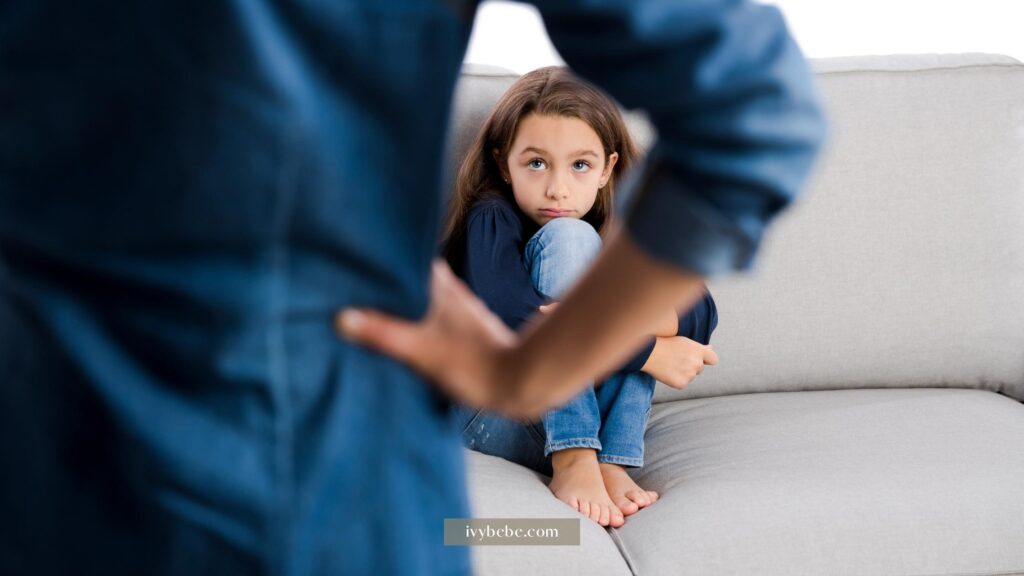
Hello there, future and new moms and dads! If you have suffered from toxic parenting during your childhood, it is common to fear of falling into the same toxic parenting patterns that you experienced growing up. And sure you don’t want to repeat those same patterns with your own children. Let me tell you this, it’s never too late to break that cycle and become the best parent you can be.
In this article, I want to share some insights and information that may be helpful for you as you navigate this new chapter in your life. By exploring what toxic parenting is, how it manifests, and its effects on our lives and relationships, I hope to empower you with the knowledge and tools you need to be the best parent you can be. If you’re a soon-to-be or new parent who wants to do their best, then this article is for you. So let’s dive right in!

What is a toxic parent?
The term “toxic parent” refers to a parent who engages in behaviors that have a negative impact on their children’s mental and emotional well-being. And it’s important to understand that most of the time, it’s not because toxic parents don’t love their children. Many toxic parents simply don’t know how to love the right way, and how to be the best parents they can be. This can result in harmful behaviors that have a negative impact on their children’s mental and emotional well-being. These behaviors can include emotional manipulation, verbal or physical abuse, neglect, or over-involvement, and more.
In today’s world, toxic parenting has become a recognized issue, with many people speaking out about their experiences growing up with toxic parents. It’s a sad reality that many children grow up with toxic parents who, through their actions, leave a lasting impact on their lives. It can cause lasting damage to their children and can impact their relationships, self-esteem, and overall quality of life.
How common is toxic parenting?
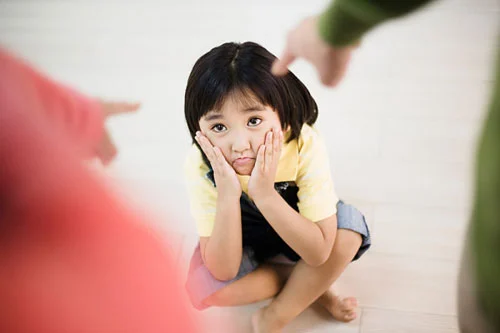
Sometimes toxic parenting patterns can sneak up on us, with comments and actions we make towards our kids without even realizing it. You know the drill, making negative comments about their appearance or abilities with no constructive intention, comparing them to others, or pushing them to be perfect – all of which can be a real downer for their self-esteem, creating unrealistic expectations which lead to feelings of inadequacy.
And while toxic parenting can be found in any culture or ethnicity, some Asian cultures may have a reputation for strict and high expectations which can sometimes cross the line. Of course, not all Asian parents are toxic, but his can manifest in multiway ways, like constant criticism, making kids feel like they’re never enough, and even physical punishment.
What are signs of toxic parents?
When it comes to toxic parenting, it’s important to be aware of the signs so you can recognize it and get the support you need. While every toxic parent is different and may exhibit different traits, there are some common behaviors that many toxic parents share.
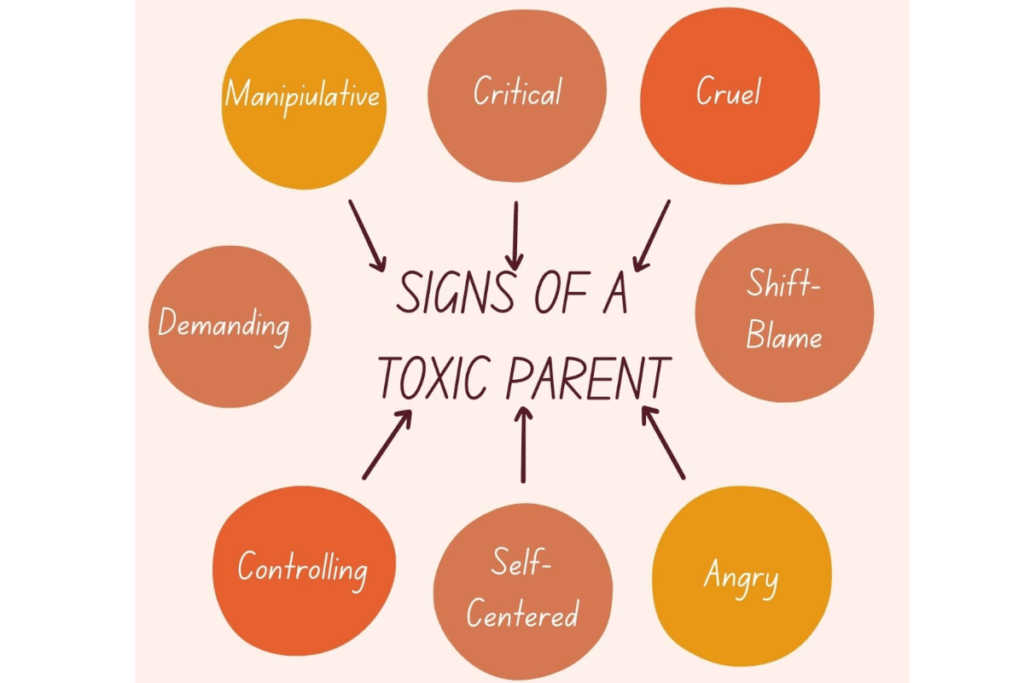
Emotional Manipulation
The classic technique of emotional manipulation is one of toxic parent’s favorite tools to control and manipulate their child’s emotions. It is one of the most common toxic parenting behaviors, and it can be incredibly damaging to the child’s mental and emotional health.
One way that toxic parents can use is playing the victim card. For example, let’s say your kiddo does something you don’t like, instead of just talking to them about it like a rational adult, you may complain about the situation on and on and make them feel responsible for fixing it, even if it’s not their fault. It’s a classic move that will make the child feel guilty and anxious, and like they are never doing enough to make their parents happy.
Another way that toxic parents may use to manipulate child’s emotions is gaslighting and making them doubt their own perceptions and memories. They might deny that they said or did something, even if the child is certain that they did. As a result, the child might be questioning their own memory and perception of reality, or even worse, feeling like they are going crazy.
Toxic parents may also use love as a weapon, withholding affection saying hurtful things like: “It’s all your fault, you always make me so upset” or “I only do this because I love you”. Toxic parents might even refuse to give their child a hug or show affection when the child does something they don’t approve of as a punishment. This way, the child will like they are not loved or valued, and they have to earn love and affection through their behavior.
Verbal or Physical Abuse
Another form of toxic behavior is verbal or physical abuse. Below are some of the common signs of abusing:
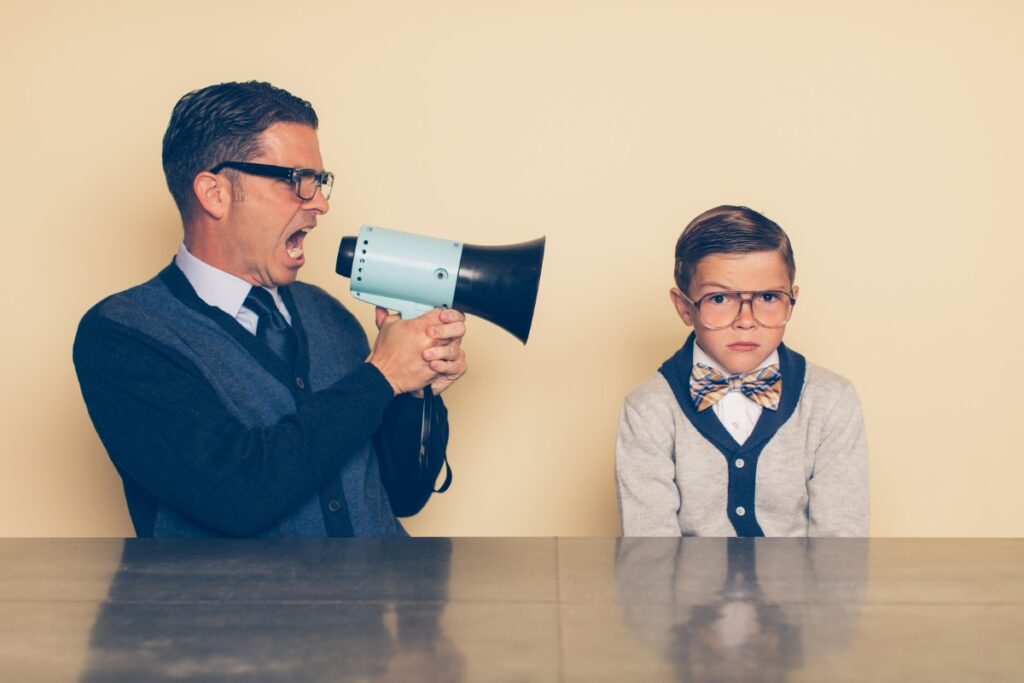
- When parents yell, scream, belittle, or name-calling their kids, it’s verbal abuse and it’s extremely harmful. It damages a kid’s confidence and self-esteem, making home feel like a hostile place instead of a safe and loving one. This type of abuse can leave lasting scars on a kid’s mental health and damage their self-esteem for a long time.
- When a parent is physically hurting or threatening to hurt a child, it can seriously mess with a kid’s well-being, both in the short and long term. Physically hurting a child can cause emotional pain and feelings of fear, anxiety, and trauma, and that stuff can stick around for a while. Even just threatening to hurt them can make a child feel scared all the time, even when they’re not actually in harm’s way. All of this creates an extremely hostile environment at home, which is not a good place for a kid to grow up.
- Being controlled through shame, guilt, or fear by a parent is rough for a kid. Hearing stuff like “You’re so stupid, you’ll never succeed” can make a child second guess themselves and feel insecure about their own thoughts and feelings.
This lack of confidence can also make it hard for them to express themselves freely. Kids need to feel safe and supported to grow and develop properly, but being controlled through negative emotions goes against that. The result can be a child who doesn’t trust their own instincts and feels like they always have to be careful.
Neglecting & Uninvolved
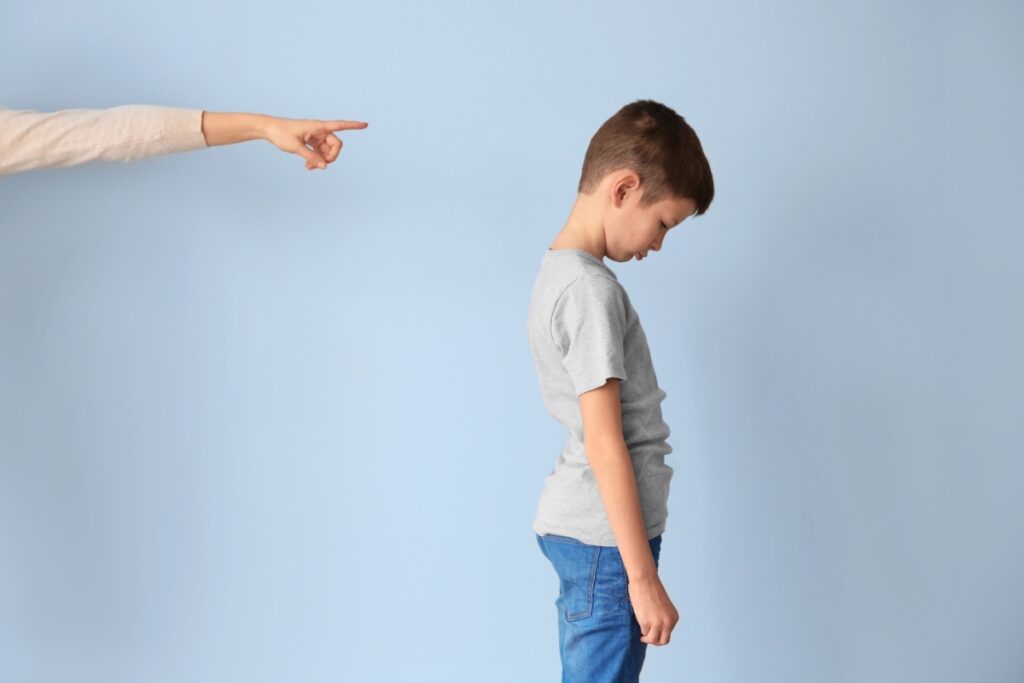
Neglecting and uninvolved parents are those who don’t take care of their child’s basic needs like food, clothing, or medical attention. They also often don’t provide a safe and stable home environment. Additionally, they tend to not be involved in their child’s life, like missing important events or not being emotionally present.
This is one the four common types of parenting styles, also the worst one. Children who grow up with neglectful or uninvolved parents often struggle with low self-esteem, behavioral problems, and a lack of social skills. And it can be just as harmful as other forms of abuse.
RELATED POST: Find Out the Most Effective Parenting Style in America Today
Over-involvement
When a parent is overly involved in their child’s life, it can be just as damaging as neglect. They may micromanage every aspect of their child’s life, not allowing them any privacy or personal space. This type of parent may also refuse to acknowledge or accept their child’s boundaries, constantly intruding in their life and making decisions for them. They might be telling their children everyday something like: “You can’t hang out with your friends, you have to stay here with me” or “I need to know everything you do, who you talk to, and where you go”.
This kind of behavior can prevent a child from growing into a confident, independent adult and can lead to a lifetime of codependency and low self-esteem. This trait of toxic parents is similar to what we usually called “helicopter parenting“.
Apparently, not every toxic parent will exhibit all of these traits, and some may exhibit different traits that are not mentioned here. However, if you’re seeing one or more of these behaviors from parents, it may be red flags of toxic parenting.
The Domino Effect of Toxic Parenting
You know how sometimes you see those domino videos where one domino falls and triggers a chain reaction of all the others falling too? That’s kind of like what happens with toxic parenting – the so-called Domino Effect – where the negative behaviors or experiences can be passed down from one generation to the next.
When experienced toxic parenting, a kid grow up in a hostile home environment where their self-esteem and emotional health is seriously damaged. And if that kid becomes a parent themselves, they may repeat the same toxic behaviors, keeping the cycle going. And the worst part is not just the kids, but toxic parenting can cause stress and anxiety to ripple through a family. And if this issue is not addressed early and properly, it can only get worse over time.
How to break the cycle and avoid toxic parenting patterns with your child
Breaking the cycle of toxic parenting can be incredibly challenging, because some of the toxic traits are not easy to be seen and aware of. Even if you realize some of the toxic parenting signs in yourself, it is not as easy as changing one bad behavior, but it may be a long journey of self-recovery that you might take years to overcome the negative impacts to heal and grow. That is to say, breaking the cycle of toxic parenting takes time and effort, but it’s worth it for the sake of your children, your family and for yourself.

Below are some tips to help you avoid toxic parenting patterns and provide a healthy and supportive environment for your child:
- Self-reflection: Avoiding toxic parenting can start with reflection and self-awareness. Think back on your own childhood and see if you can spot any toxic patterns from your own parents. Once you recognize them, you can work on being mindful and ditching those toxic behaviors for healthier ones. By being more self-aware and understanding as a parent, you can give your kids the childhood they deserve – filled with love, safety, and a feeling of being valued.
- Self-care: It’s a big step forward when it comes to avoiding toxic parenting. You gotta take care of yourself first so you can be the best parent possible. That means taking care of your mental and emotional well-being. One way to do that is to talk to a therapist about any childhood memories of toxic parenting that still affects you. They can help you identify toxic patterns from your own parents and figure out how to change them.
Not only that, mindfulness is also key. Try meditating or taking deep breaths to stay in tune with your emotions. And don’t forget to have fun! Going for a run, hanging in nature, or finding a hobby you love can help you de-stress and avoid passing any negativity onto your kiddo.
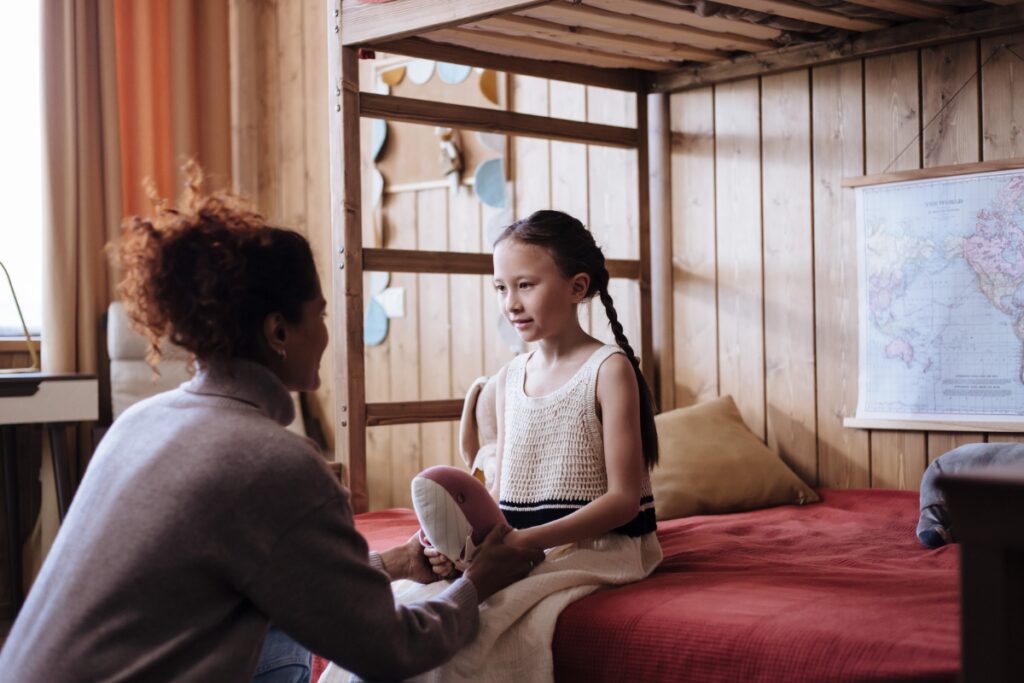
- Communication: Yep, you might not believe this but talking openly with your kid is crucial for avoiding toxic parenting. Just taking the time to really listen to what they have to say, without giving them any flak or cutting them off, can make a huge difference. Showing them that you’re there to support them and that you care about their feelings is super important. Plus, by being a good listener, you’re teaching your child how to communicate effectively, which will be a valuable skill for them down the road.
Giving your child some independence and letting them make their own choices can also help avoid toxic parenting. It helps build their confidence and teaches them how to make decisions on their own. When you trust and respect your child, and have open lines of communication, you’re setting the stage for a healthy and positive relationship. - Practicing empathy: It’s all about putting yourself in their shoes and getting a feel for how they’re feeling about a situation. Being there for them with a supportive and caring attitude is way better than using scare tactics or making them feel guilty. By really understanding your child and being a rock for them, you’ll build a solid bond and help them grow up confident and self-sufficient.
- Leading by example: Another good point to remember is just be a good role model for your kiddo and they’ll pick up on all the good stuff. Showing kindness and respect to others, solving problems in a healthy way, and being good communicators will all help them grow up happy and successful.
The most powerful way to change the world is to live in front of our children the way we would like the world to be.
– GRAHAM WHITE –
- Last but not least, provide a stable and secure environment. Sure thing, having a solid foundation is super important for your kiddo’s growth and development. This means making sure they have a safe and cozy home, a steady routine, and a squad of loving family and friends. All of this helps create a stress-free and happy childhood, which sets the tone for a successful and fulfilling life. A stable and secure environment can also help ease anxiety and give your child a sense of security and well-being. So, by prioritizing this, you’re giving your child a strong foundation for success!
So to sum it up, avoiding toxic parenting is crucial for everyone’s well-being and growth, not only the child but also the family as a whole. It’s important to know the signs of toxic parenting and take action to break the cycle and make a change. Just being mindful and working on being a better parent every day can go a long way in creating a safe and supportive environment for your kids. Let’s aim for a loving and positive upbringing for our next generation!